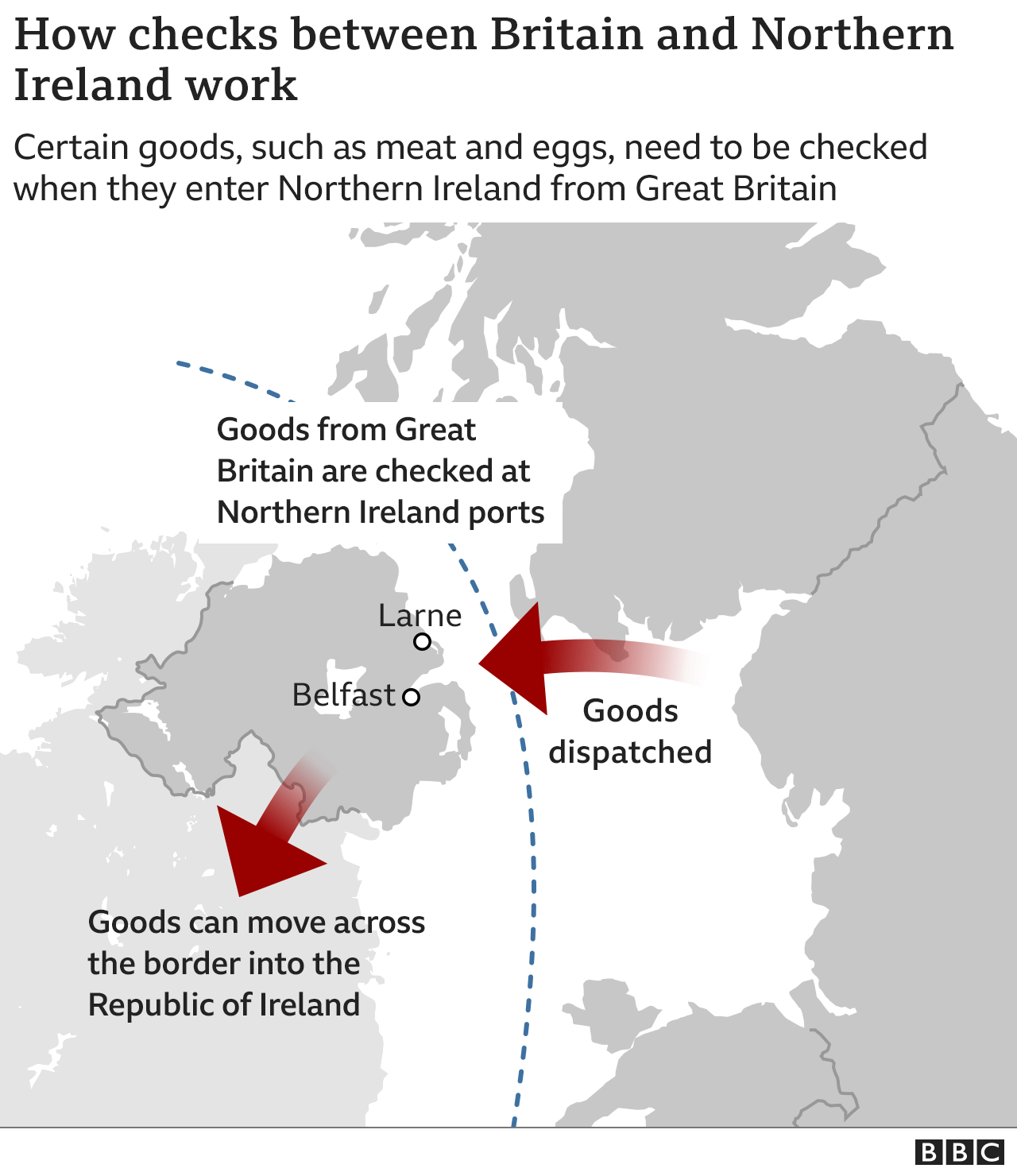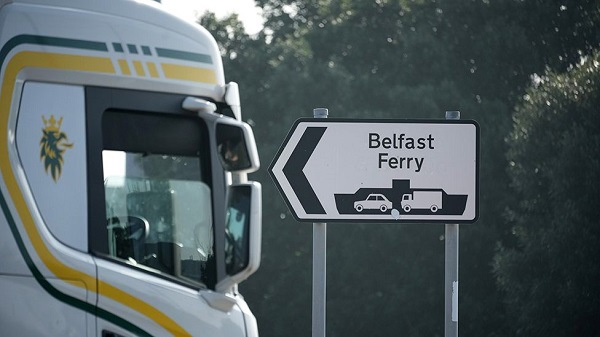The UK government has announced plans to introduce a law which will override the Brexit deal it signed on Northern Ireland.
The Northern Ireland Protocol – agreed with the European Union (EU) in 2019 – has been a source of tension since it came into force at the start of 2021.
What is the Northern Ireland Protocol?
Special trading arrangements were needed for Northern Ireland after the UK voted for Brexit in 2016. This is because it’s the only part of the UK with a land border with an EU country – the Republic of Ireland.
Before Brexit, it was easy to transport goods across this border because both sides had the same EU trade rules. No checks or paperwork were necessary.
After Brexit, a new system was needed because the EU has strict food rules and requires border checks when certain goods – such as milk and eggs – arrive from non-EU countries.
The border is also a sensitive issue because of Northern Ireland’s troubled political history. It was feared that cameras or border posts could lead to instability.
The UK and the EU agreed that protecting the 1998 Northern Ireland peace deal – the Good Friday Agreement – was an absolute priority. So, both sides signed the Northern Ireland Protocol as part of the Brexit withdrawal agreement, which is now part of international law.
How does the protocol work?
Instead of checking goods at the Irish border, the protocol agreed that any inspections and document checks would be conducted between Northern Ireland and Great Britain (England, Scotland and Wales). These take place at Northern Ireland’s ports.
It was also agreed Northern Ireland would keep following EU rules on product standards.

Why has there been opposition to the protocol?
Unionist parties support Northern Ireland being part of the UK. They argue that placing an effective border across the Irish Sea undermines Northern Ireland’s place within the UK.
Northern Ireland’s largest unionist party, the Democratic Unionists (DUP), is refusing to take part in Northern Ireland’s power-sharing government unless its concerns are resolved.
Even though the DUP came second in May’s elections to Sinn Fein – a nationalist party which accepts the protocol – a new Northern Ireland government cannot be formed without its support.
Sinn Fein has accused the unionists of believing they can “hold society to ransom”.
What is the UK government proposing?
Foreign Secretary Liz Truss told MPs that the Protocol had caused problems which the government had not foreseen when it signed the agreement.
Ms Truss argued that the Protocol had undermined the Good Friday Agreement, and had also led to unnecessary bureaucracy for businesses moving goods between Great Britain and Northern Ireland.
She said that the proposed Northern Ireland Protocol Bill would mean that British goods destined for sale in Northern Ireland would only have to to meet British standards, and not those of the EU.
The foreign secretary added that the urgency of the situation meant that the government had to act without reaching agreement with the EU, but that its preference was still for a negotiated settlement.
However, opposition MPs have accused the government of acting irresponsibly.
What is the EU saying?
Reacting to the Foreign Secretary’s statement, the EU said it would “need to respond with all measures at its disposal”.
It has warned before that renegotiating the text of the Northern Ireland Protocol is out of the question, and that any unilateral action by the UK would have consequences.
The EU set out its own proposals for the protocol last October, including:
- an 80% reduction in checks on food products arriving in Northern Ireland and halving the amount of paperwork
- passing legislation to allow the trade in medicines between GB and Northern Ireland to continue
- relaxing rules so chilled meats, such as sausages, could still be sent across the Irish Sea
In return, the EU wanted extra safeguards to prevent products from Great Britain crossing into the Republic of Ireland.
The UK rejected this offer, saying it would “worsen the current trading arrangements”.
 GETTY IMAGES Chilled meats – including sausages – have been a particular sticking point
GETTY IMAGES Chilled meats – including sausages – have been a particular sticking pointWhat happens next?
Any legislation needs to go through Parliament, which could take months.
It is not clear how the EU will respond, but some experts fear a possible trade war.
Former prime minister Theresa May has warned that abandoning the protocol would damage the UK’s reputation.
She said the government should consider “what such a move would say about the United Kingdom and its willingness to abide by treaties which it has signed”.
BBC
